There’s a movement sweeping across the globe that has people looking for fresh, local, and nutritious food that’s sustainably grown. Montreal’s Lufa Farms embodies that spirit, bringing real food to people living in cities. To continue serving the community, the urban farm has just finished building the world’s largest rooftop greenhouse!
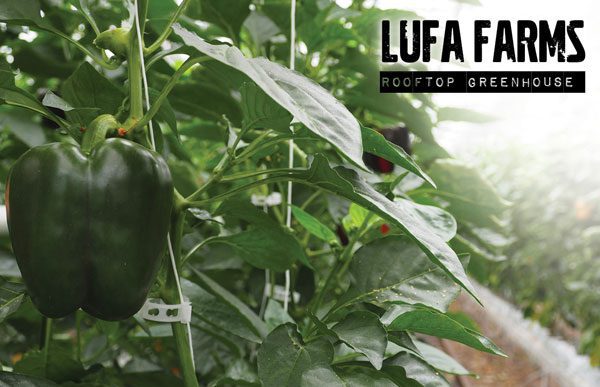
Garden Culture had the chance to tour one of the original greenhouses in June 2018 (see photos) and learn about how produce is grown and distributed to ‘Lufavores’ through subscription boxes.
If you’re not familiar with the concept, Lufa built the world’s first commercial rooftop greenhouse on an industrial building in Montreal.
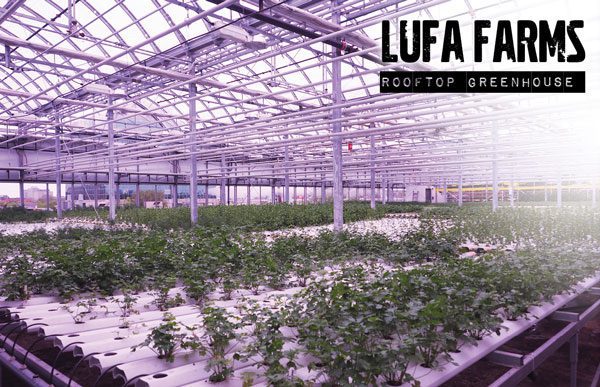
The goal is and always has been to fix a broken food system and feed cities by growing year-round more smartly and sustainably.
The urban farm also partners with local farms, artisan shops, and bakeries to offer subscribers a full selection of eco-friendly and responsibly-made products.
The World’s Biggest Rooftop Greenhouse: Lufa Farms
Lufa’s newest greenhouse sits on top of a former Sears warehouse in Montreal’s St-Laurent borough and covers 163,800 square feet! That’s about the size of three football fields.
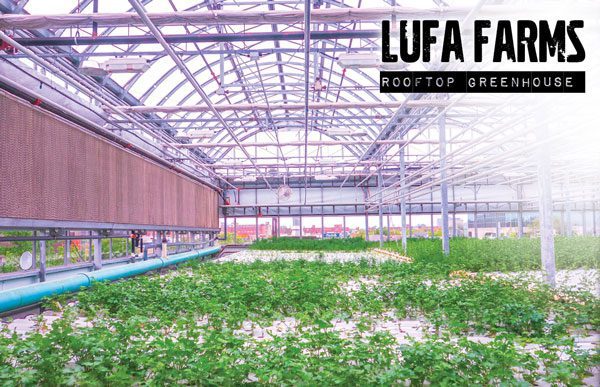
The enormous space has doubled Lufa’s production capacity from feeding 1% to 2% of Montreal’s families.
The best part? It hasn’t used any land to do it. Just vacant space in the sky that gets a whole lot of sun.
New Space, Same Motto
Much like at Lufa’s other greenhouses in the city, special attention is given to growing food sustainably and without waste. For example, all of the food is harvested to order a few short hours before it delivers.
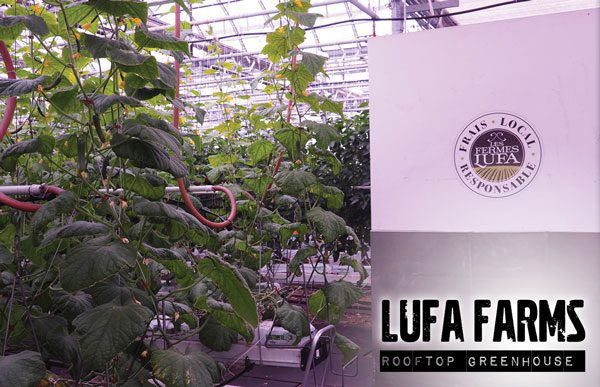
The high-tech greenhouse uses a hydroponic system (NFT and grow bags) for tomatoes, cucumbers, eggplants, peppers, etc. Water runs through a closed-loop system, and anything that isn’t used by the plants ends up in a holding tank to be redistributed. Rainwater is also collected from the rooftop and given to the plants.
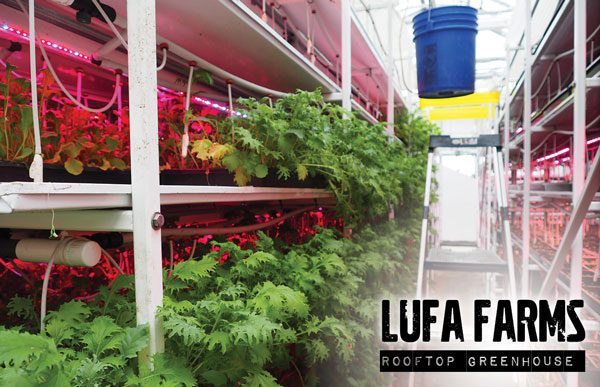
The plants themselves automatically roll through the greenhouse to different zones ideal for their various stages of growth. Bees and ladybugs are released into the space for pollination and pest control.
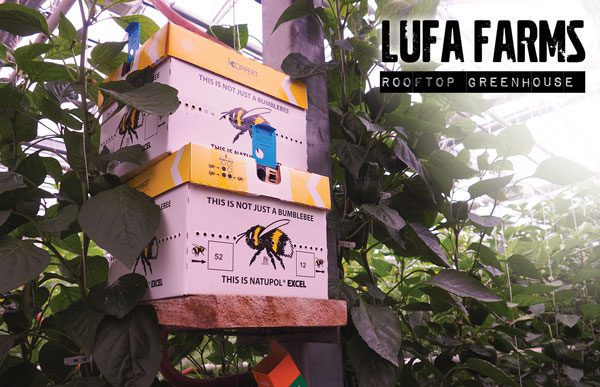
There are no two ways about it; Lufa Farms is cool. The company is a model for cities worldwide and proves that eating fresh in urban areas is possible.

